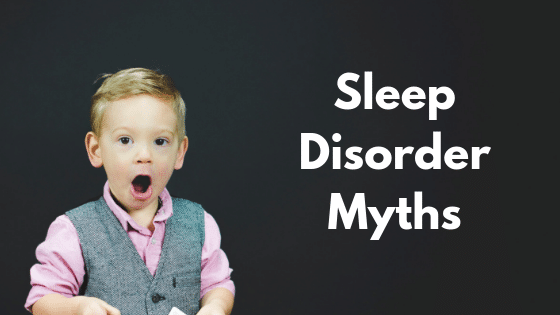Have you fallen for any of these common sleep disorder myths? Although we all sleep every night, many of us know very little about sleep and why our bodies need it.
Debunking Common Sleep Disorder Myths
Let’s take a closer look at the common sleep disorder misconceptions and discover the truth about unhealthy sleep patterns.
Myth: You can “cheat” sleep.
Truth: Some people try to cheat sleep by only sleeping a few hours at night, then taking one or multiple naps during the day. This is referred to as biphasic or polyphasic sleep. While it may work for some people, it’s not healthy for extended periods of time.
Sleep experts recommend that most healthy adults should get between 7 and 9 hours of sleep each night to function properly during the day. A lack of sleep one night will eventually need to be replenished with additional sleep over the next few nights. Although you may think your body will get used to a lack of sleep, this is simply not true.
Related: What Happens to My Brain When I’m Sleep Deprived?
Myth: Insomnia means you have trouble falling asleep.
Truth: Trouble falling asleep can be a sign of insomnia, but there are several symptoms of insomnia including waking up too early and not being able to get back to sleep, frequent awakenings, and waking up feeling exhausted. If you have one or more of these symptoms, you may be suffering from insomnia.
Discover how insomnia affects mental well-being, and what you can do to get a better night’s sleep.
Myth: Your brain rests during sleep.
Truth: Your body rests during sleep, but your brain remains active, gets recharged and still controls many body functions including breathing. The brain typically drifts between two sleep states, rapid eye movement (REM) sleep and non-rapid eye movement (NREM) sleep. So while you may not be aware of it, your brain is actually active during sleep.
Learn more about REM and NREM sleep cycles, and how they affect your body.
Myth: Your body needs less sleep as you age.
Truth: Sleep patterns may change as we age, but the amount of sleep we need generally doesn’t. Older people tend to get sleepy earlier in the evening and may wake more frequently throughout the night, but most adults need between 7 and 9 hours of sleep to remain healthy, even as they age.
Myth: Snoring is normal and harmless.
Truth: Snoring can be a sign of sleep apnea, a sleep disorder that is associated with other medical problems such as heart disease and diabetes. Although snoring may seem like a common annoyance, it can actually be a sign of something much more serious.
Related: Sleep Like a Baby: The Snoring Solutions You Need for a Good Night’s Rest
Get the Help You Need to Improve Your Sleep
To learn more about sleep disorders and treatment options, please contact us today.

